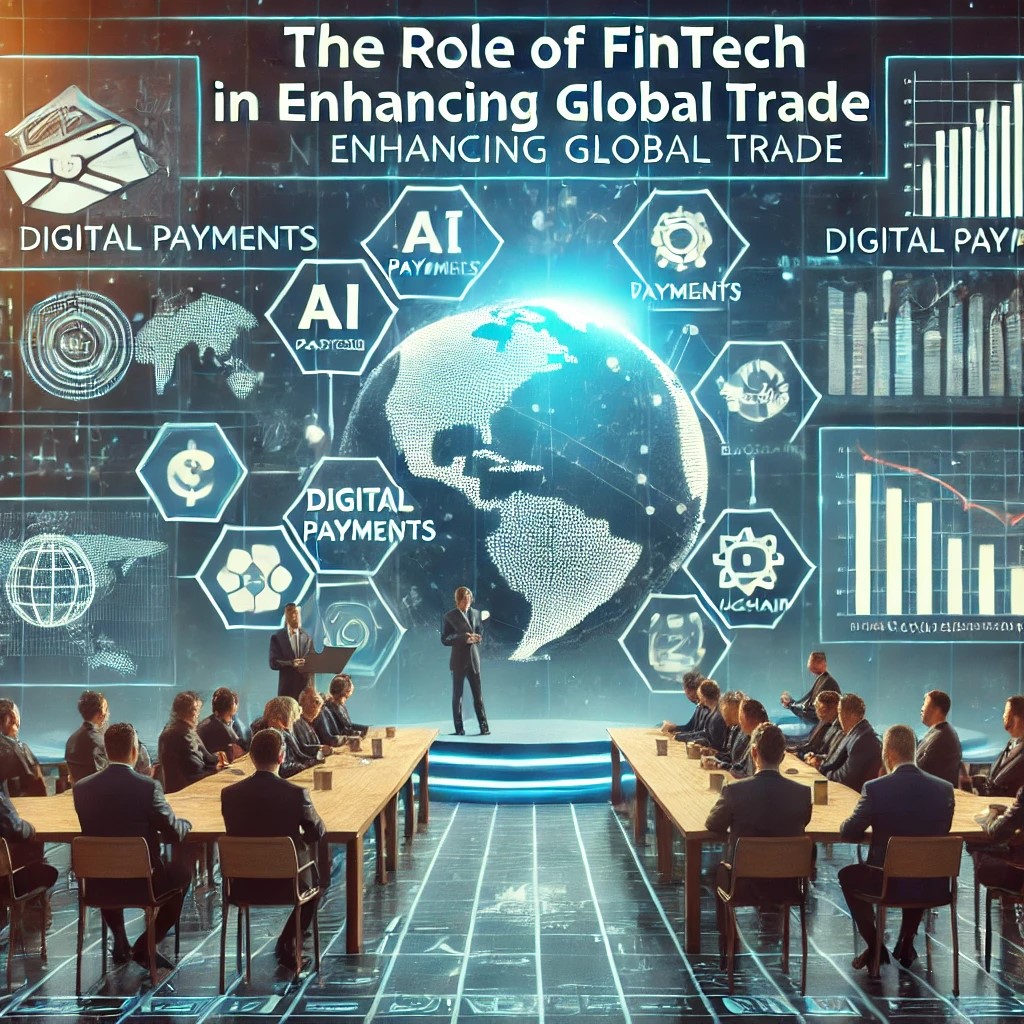In an increasingly interconnected world, financial technology (fintech) has emerged as a transformative force in global trade. By leveraging cutting-edge technologies, fintech solutions are streamlining transactions, reducing costs, and enhancing transparency. This article explores the current trends in fintech's impact on global trade and offers predictions for its future role.

Current Trends
Blockchain Technology
Blockchain technology is revolutionizing the way trade finance operates. By providing a decentralized and immutable ledger, blockchain ensures that all parties in a transaction have access to the same information in real-time. This transparency reduces the risk of fraud and errors, streamlines processes, and increases efficiency. Smart contracts, which are self-executing contracts with the terms of the agreement directly written into code, further enhance the security and speed of transactions.
Trade Finance Platforms
Fintech companies are developing sophisticated trade finance platforms that provide end-to-end solutions for global trade transactions. These platforms integrate various services such as invoicing, financing, and payment processing, making it easier for businesses to manage their international trade operations. Companies like TradeIX and Marco Polo Network are leading the way by offering innovative solutions that improve access to trade finance for small and medium-sized enterprises (SMEs).

Supply Chain Financing
Supply chain financing has benefited significantly from fintech innovations. Platforms that connect suppliers, buyers, and financial institutions help to optimize cash flow and reduce the working capital requirements of businesses. By using data analytics and artificial intelligence, these platforms can assess the creditworthiness of suppliers and offer financing solutions that are tailored to their needs. This helps to ensure that suppliers have the liquidity they need to meet demand and maintain operations.

Future Predictions
Greater Adoption of Artificial Intelligence
Artificial intelligence (AI) is poised to play an even more significant role in global trade. AI can analyze vast amounts of data to identify trends, predict demand, and optimize supply chains. For instance, AI-powered chatbots and virtual assistants can handle customer inquiries and transactions, improving efficiency and customer satisfaction. Predictive analytics can help businesses anticipate market changes and adjust their strategies accordingly.
Expansion of Blockchain Applications
The use of blockchain technology in global trade is expected to expand beyond trade finance and payments. Blockchain can enhance transparency and traceability in supply chains, ensuring that products are ethically sourced and comply with regulations. This is particularly important for industries such as food and pharmaceuticals, where the provenance and authenticity of products are critical.
Conclusion
The role of financial technology in enhancing global trade is undeniable. From facilitating instant cross-border payments to providing secure and transparent trade finance solutions, fintech is transforming the landscape of international commerce. As technologies such as AI, blockchain, and mobile banking continue to evolve, their impact on global trade will only grow. By embracing these innovations, businesses can streamline their operations, reduce costs, and compete more effectively in the global market. The future of global trade is bright, and fintech is at the forefront of this exciting transformation.




